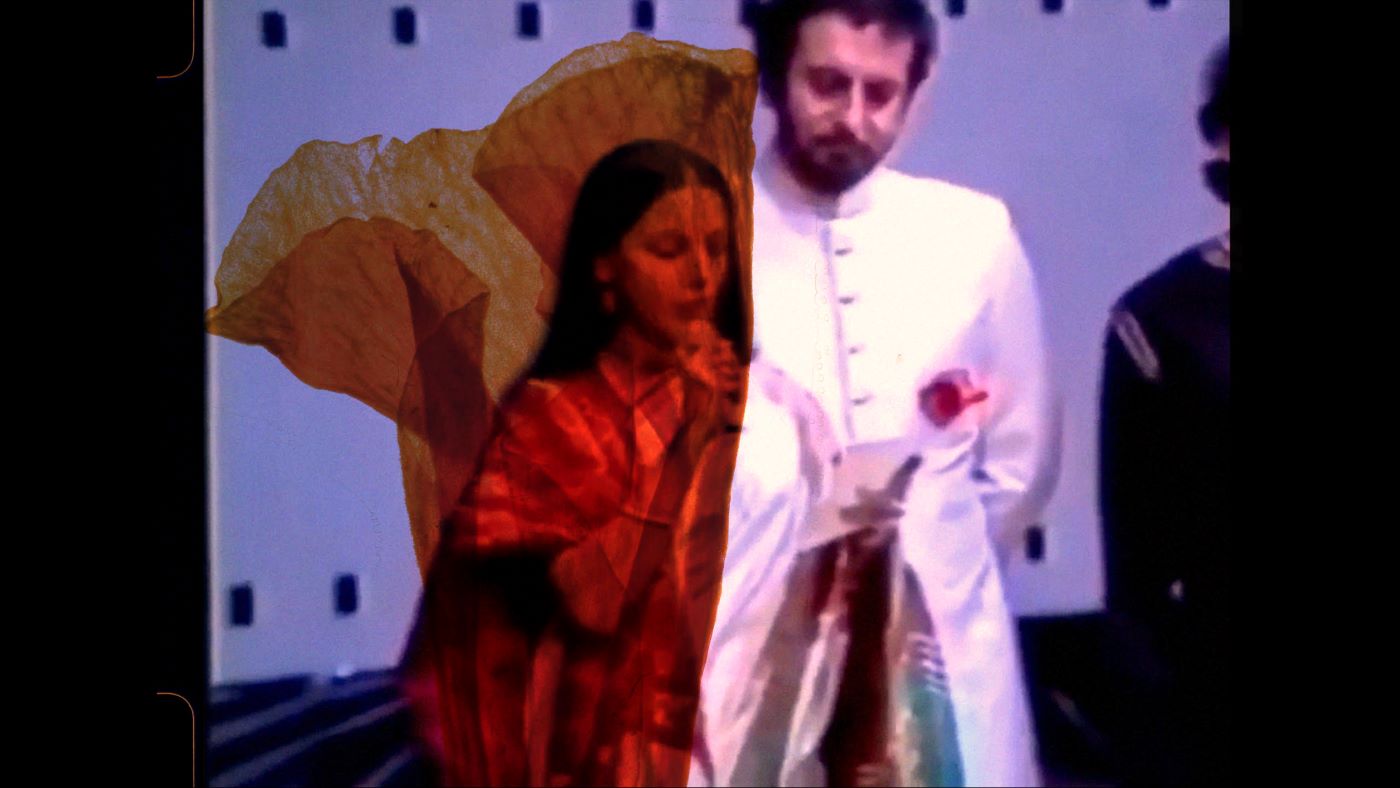Film Text: Letter From Your Far-Off Country
Film Text: Letter From Your Far-Off Country

Letter From Your Far-Off Country
By Ekta Mittal
May this letter, reach you, Inshallah
The images of Shaheen Bagh seem so far to me; the voice of a student narrating Dear Shahid, further, and Safdar, even further away. Anamorphic, in sound and image. Is it that time is fleeting past me, or is it such a time, where everything quickly dissipates before your eyes? You remember nothing. It is not a mystery, it is a systematic attack on memory. Only disjointed flashes and distorted sounds remain caught in our mind. Your letter was reminiscent of some of these flashes in my mind. History deceived me.
This film is a part of a lost, mythical, “national integration project,” where strange interstices could only perhaps meet as myths: assassinated communists, a mass protest of muslim women, an anti-caste rational god, a Kashmiri poet, a people under siege. Seventeen minutes, it feels like a precursor, a beginning of the endless segues and stories of people, who stand apart. An aesthetic, bearing the weight of its own time: still to be formalized, defined, understood, resembling frames of old agitprop cinema, of film essays, holding on to analog nostalgia with inevitable positioning of the digitized universe. Fragile.
I wish there were ways to piece these distant pasts and disembodied presents, to imagine the future, creatively, collectively. In Ambedkar’s gestures, I see conviction. In his writing, I see clarity. In Safdar’s voice, I hear passion. In that leaflet, I hear courage. Even now. People who take to the streets, get there, in anger—students, farmers, workers, artists et al. It’s in how we piece these sounds and images together—as continuities or ambiguities.
Shahid speaks of memory and afterlife simultaneously. After the image of hundreds and hundreds of undelivered mail, he longs to see that familiar place of beauty and love. Look closely, it is there, everywhere, in small pockets. In them, I see resistance, they can never be destroyed, they grow, wild and everlasting. Don’t lament, dead friend.
In our mediated worlds, we become simulations. Locations are mapped, houses are marked, people are surveilled. Fear and suspicion is brewing all around us, the design of amnesia, paralysis and paranoia in fitted in all our gadgets. Your letter felt like a desire machine that seeks to remember against warning signs and unending protests. Are these fragments, in and of themselves deep wells of wisdom, reappearing as estranged, distant residues? Sanziri, Ambedkar, Shahid could imagine an equal world, without untouchability, discrimination and inequality. Against power structures that continue to work and invest in hate and segregation meticulously. In myths censored from me, I suspect, radical futures were imagined. In myths, unknown to us, I suspect, translations. We need to learn the language in which those epiphanies were written. Fear lies with those who censor knowledge; for them knowledge appears as a threat, not in those who are easily fulfilled, the search is endless. We have to find other ways to reconnect; perhaps, around the mountain or at the post office?
Your letter, reminded me of the courage of artists, writers and ideologues. I assure you friend, their spirits are still resonant. Perhaps, not in the same tone, in the same form, perhaps not so visible, but loud and clear, alive and stubborn. I view this “tense” climate, as a body hiding behind veil of cowardice, unable to face the beauty, resilience and truths, of other people, born in the same land. To attack people when they are sleeping, that is an act of cowardice and shame. The ghosts from Shahid’s poems—all those who are dead and gone, unreported and missing, are rising somewhere—inside us, around us. Your letter conveyed that sense of that haunting. There is a fury born from unrest, a screech from unknown terrains, a scream from the crowd. Listen, carefully, we will all meet there.
